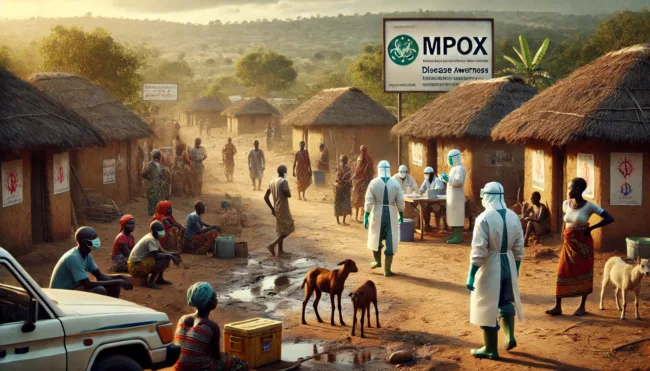Mpox in Africa: The untold story of a continent’s struggle against a growing threat
Current prevalence and trends of Mpox in Africa
Mpox, also known as Monkeypox, has been a recurring health issue in Africa. Prevalence trends show that the virus is endemic in certain regions, with infection rates fluctuating due to various factors such as public health interventions and environmental changes. The geographical distribution of Mpox cases is primarily concentrated in Central and West Africa, with countries like the Democratic Republic of Congo and Nigeria being most affected. Recently, there has been an uptick in cases, which raises concerns about potential outbreaks in new areas.
Historical outbreaks and their impact on African communities
Historically, Mpox outbreaks have had significant impacts on African communities. The virus, first identified in 1970 in the Democratic Republic of Congo, has caused several localized outbreaks over the decades. Community impacts include disruptions to local economies, increased mortality rates, and strain on healthcare systems. Response measures during these outbreaks have varied, but challenges such as limited resources and late detection have often exacerbated the situation.

Explore Mpox in Africa: trends, challenges, and future strategies. Understand its impact on health, economy, and the role of global organisations in control efforts.
Preventive measures and vaccination campaigns in Africa
Preventive measures against Mpox in Africa focus on both public health interventions and vaccination campaigns. Various strategies have been implemented, including educational programmes, hygiene practices, and wildlife control, given the zoonotic nature of the virus. Vaccination efforts, particularly with the smallpox vaccine, have shown promise in reducing the incidence of Mpox. However, the coverage of these campaigns remains limited, with accessibility being a major hurdle in rural areas.
Challenges faced in Mpox diagnosis and treatment in Africa
Diagnosing and treating Mpox in Africa presents several challenges. Diagnostic tools are often outdated or unavailable in remote regions, leading to delayed identification of cases. Treatment options are limited, with supportive care being the primary approach. Accessibility to healthcare facilities is another major issue, as many affected communities are in hard-to-reach areas. This often results in underreporting and inadequate treatment of the disease.
Role of international organisations in managing Mpox in Africa
International organisations play a crucial role in managing Mpox outbreaks in Africa. Entities like the World Health Organisation and the Centers for Disease Control and Prevention have been involved in providing financial aid, medical supplies, and technical expertise to affected regions. Their involvement has been pivotal in containing outbreaks and improving local healthcare capacities. However, the effectiveness of these efforts is often hampered by logistical challenges and coordination issues with local governments.
Mpox and its impact on local economies in affected African regions
Mpox outbreaks have a profound impact on local economies in affected African regions. The disease often leads to economic losses due to decreased productivity, as infected individuals are unable to work. The agricultural sector is particularly vulnerable, as the virus can affect livestock, leading to further economic strain. Recovery efforts are typically slow, with many regions struggling to bounce back from the financial burden imposed by the disease.
Community response and public awareness regarding Mpox in Africa
Community response and public awareness are critical in the fight against Mpox in Africa. Public health campaigns aimed at increasing awareness levels have been launched in various countries, focusing on prevention and early detection. Community actions, such as volunteer-driven healthcare initiatives and localised information dissemination, have also played a significant role in managing outbreaks. However, misinformation and stigma surrounding the disease remain challenges that need to be addressed.
Future outlook and strategies for Mpox control in Africa
The future outlook for Mpox control in Africa depends on the implementation of effective strategies and continued international support. Projected trends suggest that without sustained efforts, Mpox could become more widespread, particularly in areas with poor healthcare infrastructure. Planned interventions include expanding vaccination coverage, improving diagnostic capabilities, and enhancing public health education. Long-term goals focus on eradicating the virus from the continent and preventing future outbreaks.
Mpox remains a significant public health challenge in Africa. To mitigate its impact, there is a need for coordinated efforts involving local communities, governments, and international organisations. Strengthening healthcare systems, improving access to diagnostics and treatments, and increasing public awareness are critical steps towards controlling the spread of the virus. Continued vigilance and proactive strategies will be essential in preventing future outbreaks and safeguarding the health of African communities.
Discover more from Business-News-Today.com
Subscribe to get the latest posts sent to your email.

